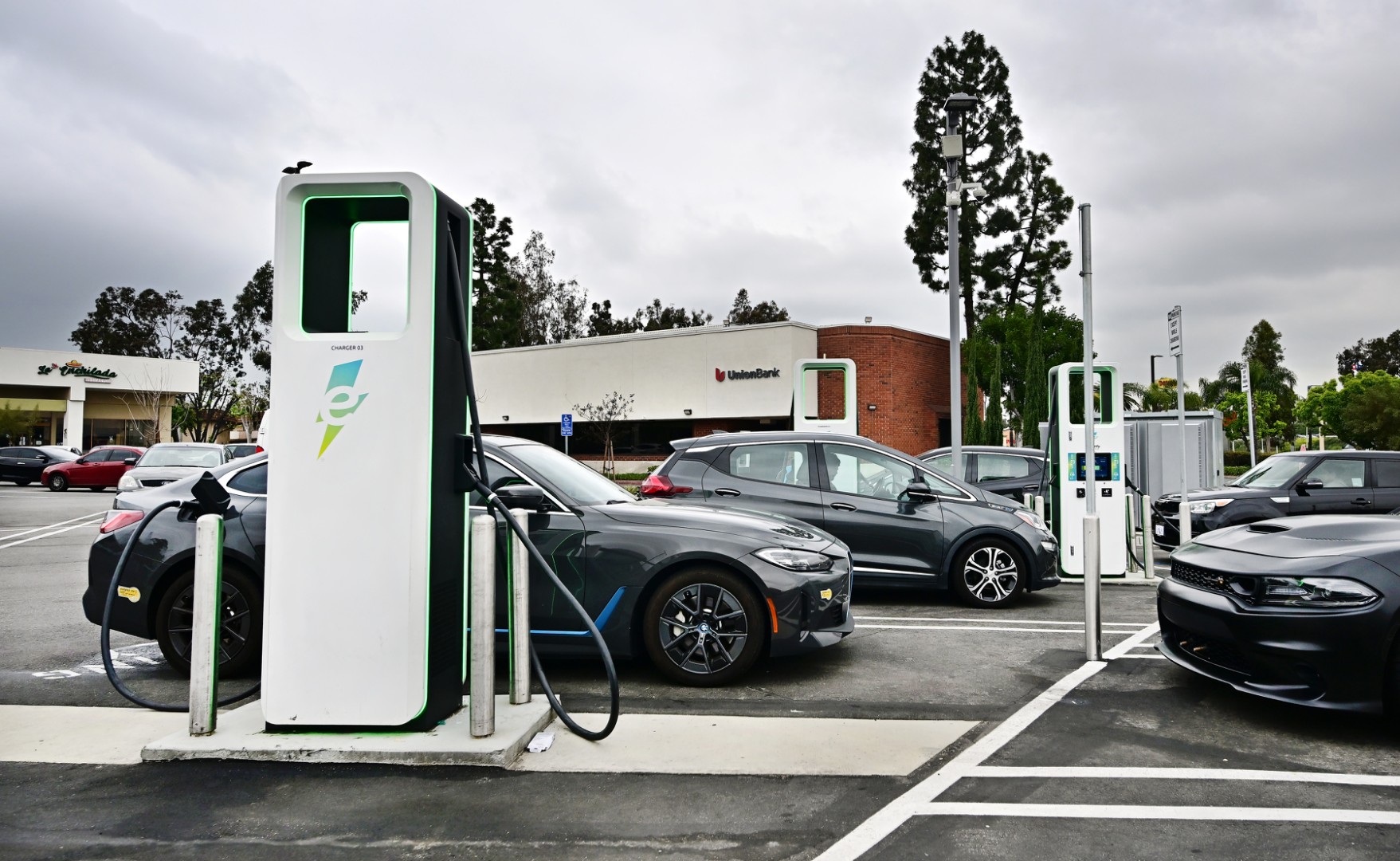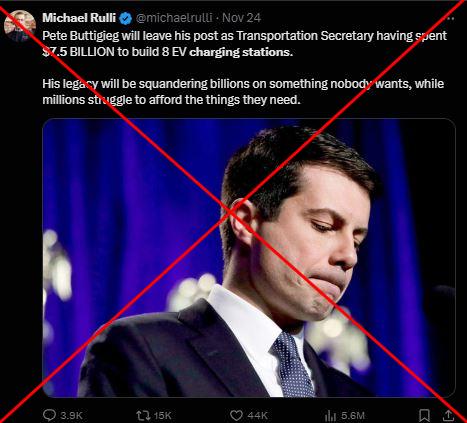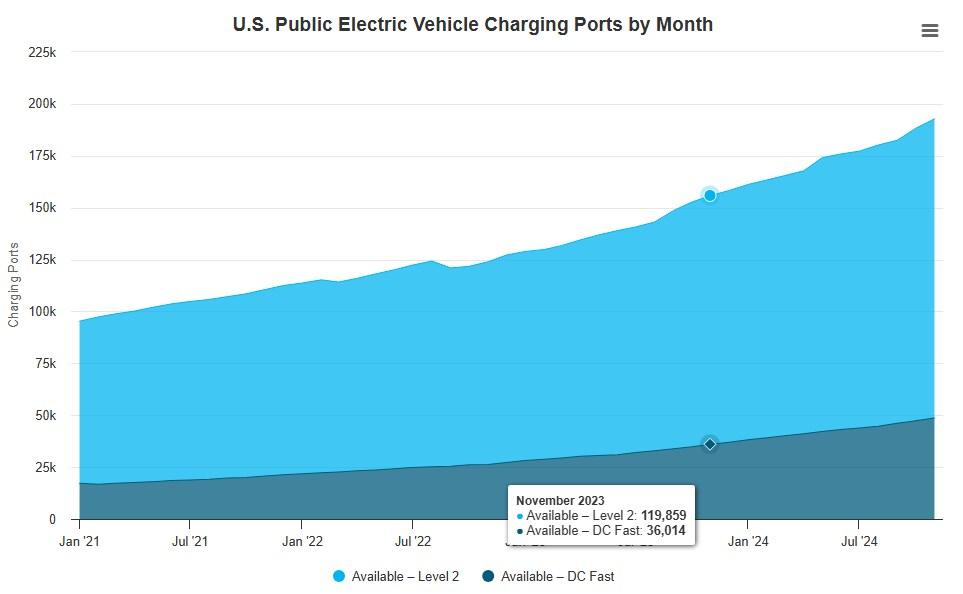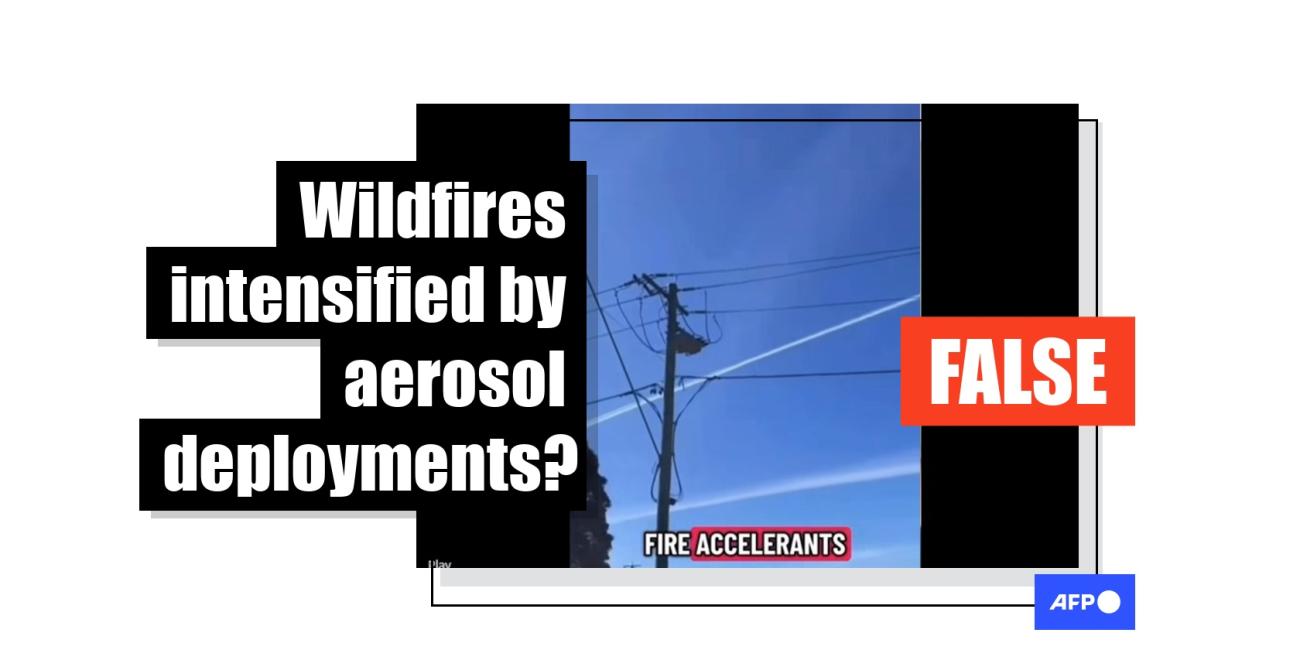
Posts misrepresent progress of EV charging network under Biden
- This article is more than one year old.
- Published on December 13, 2024 at 20:41
- 3 min read
- By Manon JACOB, AFP USA
"Pete Buttigieg will leave his post as Transportation Secretary having spent $7.5 BILLION to build 8 EV charging stations. His legacy will be squandering billions on something nobody wants, while millions struggle to afford the things they need," a November 24 post on X says.
AFP found additional post on X, Instagram and Facebook claiming only seven or eight charging stations resulted from the billions in funding nationwide.

In November 2021, President Joe Biden signed a $1.2 trillion Bipartisan Infrastructure Law. It included $7.5 billion for EV charging stations to electrify the country's transportation networks.
Keyword searches reveal the figures on the number of charging stations stem from an investigation published by The Washington Post in March 2024 (archived here) covering the early stages of the program.
"More than two years after Congress allocated $7.5 billion to help build out those stations, only 7 EV charging stations are operational across four states," the Federal Highway Administration (FHWA) told the Post -- a slow rollout also pointed out by other media outlets and analysts (archived here, here and here)
But the social media posts do not take into account the latest, updated numbers released by the FHWA, the agency and independent experts said.
According to the FHWA's latest data, received by email on December 9, projects are underway for 24,800 federally funded chargers, of which 226 were operational at 37 stations across 13 states.
Most of the network's stations are to be built in the second half of the decade, Buttigieg said on November 25, in response to critics online (archived here).
Ongoing funding
The budget is divvied up between two separate programs: $5 billion for the National Electric Vehicle Infrastructure (NEVI) Formula Program (archived here), to provide funding to states to deploy charging infrastructure and $2.5 billion distributed through the Charging and Fueling Infrastructure Discretionary Grant Program (CFI) (archived here), dedicated to electrification developments and low-emission fuel funding for disadvantaged communities.
The FHWA, a division of the Department of Transportation, confirmed to AFP on December 9 the numbers shared in social media posts late November were not up to date.
While the US Congress appropriated $7.5 billion for the electrification of the network, the funding has not yet been fully requested or spent.
States and local governments are ultimately responsible for planning and building infrastructure and the NEVI specifies funds will not be made available to a state until it has submitted its infrastructure deployment plan.
"Now that funds have been allocated, states and other jurisdictions are starting to spend the funds and build EV charging stations," said Greg Alvarez, spokesman for non-partisan energy and climate policy think tank Energy Innovation (archived here).
The multibillion-dollar plan was to build out a nationwide network over the course of several years -- with most funding allocated "between 2022 and 2026, but available through 2030," Alvarez told AFP on December 9, warning that "if funding is cut short ahead of schedule, all of this effort will have been for naught."
President-elect Donald Trump has pledged to strike down what he misleadingly dubs "electric vehicle mandates" and analysts question whether the new administration will distribute the remaining NEVI funding for EV charging infrastructures.
Independent climate policy analyst, Michael Mazengarb (archived here) said on December 6 the posts show "the danger of presenting data on government programs that are in the process of implementation, and citing the overall amount of funding allocated to a multi-year program."
Data from the US Office of Transportation and Energy shows steady growth, with a network of currently active and available public electric vehicle charging ports that more than doubled its size from January 2021 to November 2024 (archived here).

Joshua Basseches, an assistant professor of environmental studies and public policy at Tulane University (archived here), said challenges to building EV chargers remain -- particularly when considering public versus private sector interest.
"But there has been enormous progress and success with the buildout under the current administration," he said on December 9.
Read more of AFP's coverage of climate misinformation and disinformation in English here.
Copyright © AFP 2017-2026. Any commercial use of this content requires a subscription. Click here to find out more.
Is there content that you would like AFP to fact-check? Get in touch.
Contact us




